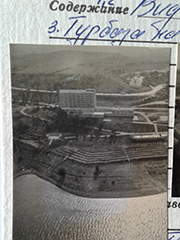In the Georgian language "Tbilisi" contains the word "heat". This heat is an etymological witness to the hot springs that have their source at a particularly rocky bend of the Mtkvari River—springs that encouraged the original settlement of the city and that course through the geography of the old town to this day. Walking through the city, it is as if its streets are charged with the energy of this heat—reflecting from the walls of the houses and ricocheting off the rocky walls of the river. Built against sharp ridges and spread across high plateaus, Tbilisi demands conflicting interpretations. As much a topographic artifact as it is a cultural one, it is place that carries its history deeply but that does not hesitate to selectively discard its past. It is a place where our received tropes of center/periphery, east/west, Europe/Asia, all come crashing down at the foot of these hot springs. It is a place of intensely lived contradictions, where under the surface you can always feel it boiling.
In setting out to research the city's social, architectural, cultural, and historical dimensions we remained alert to the ways the city's contradictions are heightened at this particular moment. Over the past decade, Georgia has experienced a process of intense transformation that is particularly reflected in its capital—where ambitious building projects and increased foreign investment has led to a sense of constant transformation across the city. Attending to this transformation demands new discussions among the city's inhabitants and raises important questions: What is to be preserved and what is to be destroyed? What can be owned and what belongs to everyone? What do we want to remember and what can be forgotten?
With the Archive of Transition, we set out to record different dimensions and velocities of change within the city. We talked to artists and city-planners, architects and activists, historians and cyberneticians, to understand what change means to all of them. While in our archive these interpretations sit next to each other on an equal register—like index cards in a file drawer—making a coherent book from this very same material suddenly creates meanings, conclusions, and perspectives. In drawing together our work we suddenly faced a question we always deferred: Which Tbilisi do we want to show?
There's a saying that the archive isn't complete until the archiver is dead. Thus we don't consider this a finished book but more a snapshot of a city within a global age of transition. There's no reason why it shouldn't look entirely different tomorrow.
—from the Introduction
|
